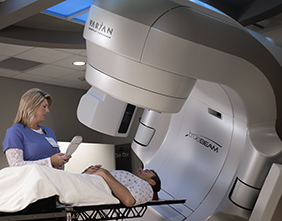Spine Surgery – What You Need to Know
posted on: 12/10/2018 8:49:13 AM
Health & Fitness Guest Columnist
Jeffrey Lobel, MD
Neurological Surgeon
Midwest Surgical Specialists
ProHealth Neurosurgery & Neurology
Spine surgery continues to evolve with the focus gradually shifting away from larger surgical interventions to those which offer individuals a more rapid rate in their surgical recovery and return to activities of daily living. Low back pain that can begin spontaneously or is associated with prior conditions is one of the most common reasons for an individual to miss work. Sufferers of back pain difficulties are often faced with difficult decisions associated with potential spinal interventions. These interventions can include surgical fusions or conservative treatment modalities that may involve prolonged medication and / or physical therapy.
Unfortunately, the cause of back pain is not easily determined and those suffering quickly want relief, which can frequently involve surgery. When having a conversation with your surgeon about the need for back surgery, it is extremely important to talk about the potential for future interventions. Many of the current surgeries being performed to address back pain or pain involving the arms and / or legs can change the dynamics of how a patient’s back performs daily functions as well as the patient’s ability to continue working. On the surface these changes may not seem significant, but can have long-term unanticipated side effects.

Most patients I speak with are familiar with individuals who have gone through prior surgeries which involve the placement of multiple screws and rods or the replacement of discs between individual bones. When asked about their knowledge of the outcomes of these surgeries, they provide mixed reviews. During consultations with patients, I ask what their post-surgery expectations are to include what they hope to accomplish in terms of pain relief and long-term goals. Frequently answers involve wanting a short recovery time leading to an increase in physical activity, all while having limited requirements for pain medication and / or bracing.
Surgical interventions which satisfy these requirements are not cookie cutter options. Instead, these interventions are individualized - dependent upon the individual’s expectations, associated medical conditions, degree of pain, limitations in activity, smoking history and prior surgical interventions. Minimally invasive surgeries focus on reducing the amount of tissue disruption or manipulation with the aim of a shorter hospitalization, decreased infection rate and reduced need for future surgical interventions. These types of spine surgeries still require incisions and have fundamental risks which are similar to standard maximally invasive spine procedures and may not be appropriate for all patients.
Minimally invasive surgical techniques have been performed in various settings for many years. Patients need to be very careful when deciding to have surgery and the type of techniques applied to address their presenting symptoms and current ailments. It should be known that very often an individualized conservative treatment plan may result in a similar outcome compared to choosing surgery as an option. I have found well-informed patients have the best clinical outcomes, if surgery is chosen as a result of truly understanding why and how the procedure will be performed.
My clinical interests include microdiscectomies, lumbar fusions and various types of decompressive surgical techniques. Commonly described procedures are transpedicular interbody fusions (TLIF), extreme lateral interbody fusions (XLIF), microdiscectomies through a tubular system and percutaneous pedicle screw fixations to stabilize the spine. To understand these forms of surgery, it is my recommendation that patients ask multiple questions and be willing to research what these techniques and procedures offer. Patients should empower themselves and not be afraid to ask their surgeon for secondary opinions if there are any concerns or questions which have not been resolved before signing a surgical consent. Spine surgery is not always a rapid repair of a problem, and it is imperative the patient be able to partner with their surgeon throughout their entire recovery.
To learn more about Dr. Lobel and the services he offers, call 419-998-8200.
Originally published in The Lima News Health and Fitness section.
Website





